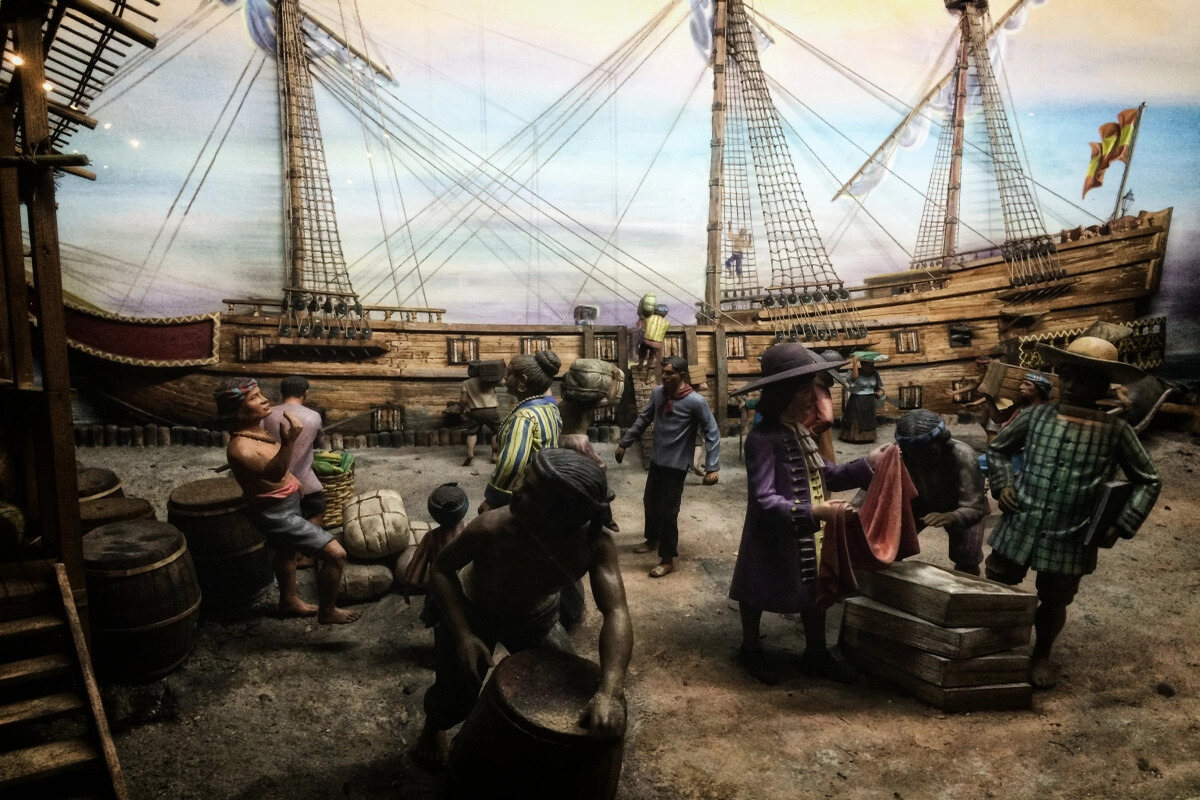
Trade is an essential aspect of human civilization and has been pivotal in shaping the course of history. From the earliest days of bartering goods to the complex global economy we have today, trade has played a vital role in connecting people, cultures, and nations.
In this article, we will delve into some captivating facts about trade that highlight its significance and impact. From the ancient Silk Road to modern-day e-commerce, we will explore the diverse aspects of trade, including its economic, social, and cultural implications.
So, whether you are a curious student, a history enthusiast, or simply interested in understanding the dynamics of global commerce, get ready to discover some mesmerizing facts about trade that have shaped the world we live in today.
Key Takeaways:
- Trade has been essential for centuries, connecting cultures and driving economic growth. From the Silk Road to e-commerce, it shapes our world and enhances global prosperity.
- International trade impacts jobs, cultural diffusion, and technological advancements. It’s a vital force that transcends borders and contributes to the well-being of nations and individuals.
Trade has been vital to human civilization for centuries.
From the earliest days of bartering to the modern global economy, trade has played a pivotal role in connecting cultures, driving economic growth, and shaping the world as we know it.
The Silk Road was one of the most influential trade routes in history.
Spanning over 6,000 miles, this network of ancient trade routes connected the East and the West, enabling the exchange of goods, ideas, and cultures between civilizations such as China, India, Persia, and Rome.
International trade accounts for a significant portion of global GDP.
In fact, according to the World Trade Organization, around 60% of the world’s total GDP is derived from international trade activities.
Trade has a profound impact on job creation.
It is estimated that around one in five jobs worldwide are directly or indirectly linked to trade-related activities, including manufacturing, transportation, and logistics.
The concept of free trade dates back to the 18th century.
Economist Adam Smith, known as the father of modern economics, advocated for the removal of trade restrictions and tariffs, promoting the idea of free trade to stimulate economic growth.
Trade deficits are not always detrimental to an economy.
While trade deficits may raise concerns for some nations, they can also indicate a strong domestic demand for imported goods and services, as well as foreign investment in the country.
The World Trade Organization (WTO) ensures the smooth flow of international trade.
Established in 1995, the WTO serves as a global organization that sets rules and resolves trade disputes between member countries, helping to promote a fair and open global trading system.
Trade sanctions are a common tool used in international relations.
Countries often impose trade sanctions as a means of exerting political pressure or expressing disapproval of another nation’s policies or actions.
Trade can lead to cultural diffusion.
As goods and ideas are exchanged through trade, different cultures come into contact with one another, resulting in the diffusion of beliefs, customs, and practices.
The internet has revolutionized global trade.
E-commerce platforms and digital marketplaces have made it easier for businesses to engage in cross-border trade, connecting buyers and sellers from all corners of the world.
Trade can contribute to environmental sustainability.
Through international agreements and regulations, trade can promote the adoption of eco-friendly practices and encourage sustainable development, ensuring a better future for generations to come.
Trade can help alleviate poverty.
By opening up new markets and creating economic opportunities, trade has the potential to lift millions of people out of poverty, providing income and improving living standards.
Trade can be affected by political instability.
Wars, conflicts, and political unrest can disrupt trade flows, hinder investment, and create uncertainty among businesses operating in affected regions.
Trade agreements can foster economic integration.
Regional trade agreements, such as the European Union or the Association of Southeast Asian Nations (ASEAN), aim to reduce trade barriers and promote closer economic cooperation among member countries.
Trade facilitates technological advancements and innovation.
As countries trade goods and services, they also exchange knowledge and expertise, leading to technological advancements and the transfer of innovative ideas across borders.
Trade can be influenced by cultural and social factors.
Cultural preferences, societal norms, and consumer behaviors can shape trade patterns, influencing the types of products that are imported and exported between countries.
Conclusion
Trade is a fascinating aspect of our global economy, shaping the way countries interact and influencing various industries. These captivating facts shed light on the significance and complexities of international trade. From the origins of trade routes to the exponential growth of e-commerce, the world of trade continues to evolve and impact our daily lives. Understanding the intricacies of trade can provide valuable insights into economic trends, cultural exchange, and the interconnectedness of nations. As technology advances and markets expand, trade will remain a driving force behind globalization, innovation, and economic development.
FAQs
1. What is the history of trade?
Trade has been an integral part of human civilization for thousands of years. The Silk Road, connecting Asia with the Mediterranean, is one of the most famous trade routes in history. However, trading dates back even further, with evidence of extensive trade networks among ancient civilizations such as the Mesopotamians and Egyptians.
2. How does trade benefit countries?
Trade allows countries to access goods and services that may be scarce or unavailable within their borders. It promotes specialization, encourages competition, and can lead to economic growth. Trade also facilitates cultural exchange and diplomatic relations between nations.
3. What are the different types of trade?
There are various types of trade, including international trade (between countries), domestic trade (within a country), bilateral trade (between two countries), and multilateral trade (between multiple countries). Additionally, there are different forms of trade, such as goods trade, services trade, and e-commerce.
4. How does trade impact the global economy?
Trade plays a vital role in the global economy, contributing to GDP growth, job creation, and poverty reduction. It fosters innovation, drives competitiveness, and enables access to a wider range of products and services. International trade also influences exchange rates, capital flows, and economic stability.
5. Are there any challenges associated with trade?
While trade offers numerous benefits, it can also face challenges such as protectionism, trade barriers, and trade imbalances. Negotiating fair trade agreements, addressing environmental concerns, and ensuring labor standards are some of the challenges that need to be addressed for trade to be mutually beneficial for all parties involved.
Was this page helpful?
Our commitment to delivering trustworthy and engaging content is at the heart of what we do. Each fact on our site is contributed by real users like you, bringing a wealth of diverse insights and information. To ensure the highest standards of accuracy and reliability, our dedicated editors meticulously review each submission. This process guarantees that the facts we share are not only fascinating but also credible. Trust in our commitment to quality and authenticity as you explore and learn with us.


